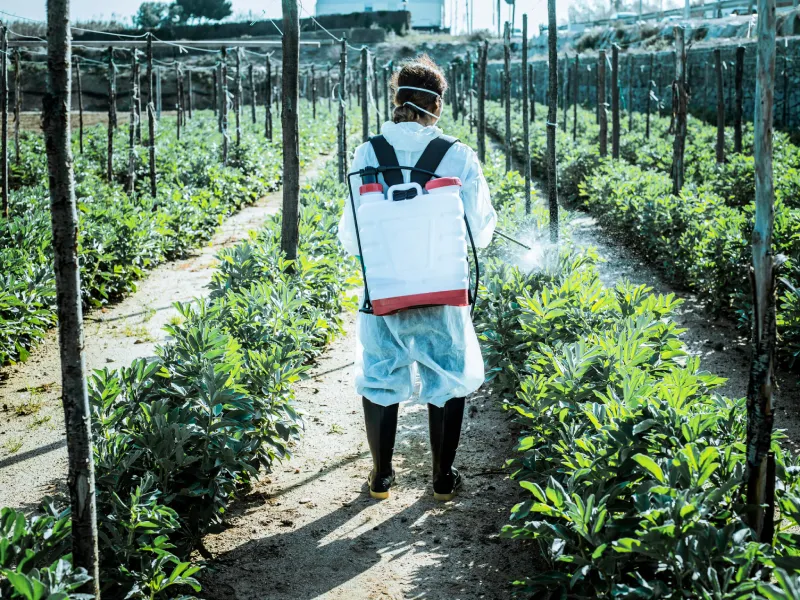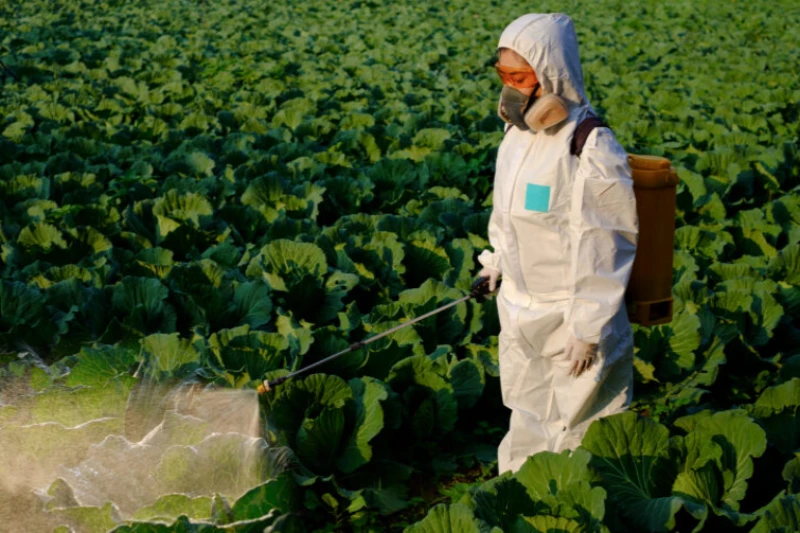RoundUp Lawsuit: What You Need To Know
Glyphosate, the active ingredient in Roundup weedkiller, has been linked to cancer and other serious illnesses. As a result, thousands of people across the country have filed lawsuits against Roundup’s manufacturer, Monsanto, alleging that the company failed to warn consumers about the herbicide’s risks. So many cases were filed nationwide that many were consolidated for multidistrict litigation in the Northern District of California.
If you or a loved one developed cancer after being exposed to Roundup, you may be entitled to legal compensation. Here’s what you need to know about ongoing Roundup lawsuits.

Lawsuits Over Roundup Exposure
Thousands of RoundUp cases have been consolidated in multidistrict litigation against Monsanto, owned by Bayer AG, the agrochemical company that manufactures Roundup. These plaintiffs allege that exposure to Roundup’s key ingredient, glyphosate, caused them to develop non-Hodgkin’s lymphoma and other forms of cancer.
The first Roundup cancer lawsuits were filed in 2015 after the World Health Organization’s International Agency for Research on Cancer classified glyphosate as “probably carcinogenic to humans.” Since then, multiple juries have agreed with plaintiffs that Roundup exposure caused their cancer, awarding over $2 billion in damages for justice connected to Roundup.
If you regularly used or were exposed to Roundup and then developed non-Hodgkin’s lymphoma or another form of cancer, contact us to pursue your claim.
Qualifying for The Roundup Lawsuit
To have a strong case for compensation in Roundup litigation, you must meet three main criteria:
- You were exposed to Roundup weedkiller through direct contact or contact with sprayed areas. The more you used Roundup or were exposed to it, the stronger your case may be.
- You have been diagnosed with non-Hodgkin’s lymphoma or another form of cancer associated with Roundup exposure. Roundup is specifically linked to increased risk for several types of lymphoma, leukemia, and myeloma.
- There is a reasonable time gap between your exposure to Roundup and your cancer diagnosis. Cancer caused by toxin exposure can take years to develop, so having at least two years between your exposure and diagnosis strengthens the causal link.
If you meet these criteria, we can connect you with an attorney to help you gather the evidence needed to prove that Roundup caused your cancer. This can include medical records, product purchase receipts, evidence of how much you used Roundup, and expert opinions showing the chemical link between glyphosate and your cancer. With strong evidence, you can seek legal compensation through the Roundup litigation.

Milestone Settlements and Verdicts in the Roundup Lawsuit
Thousands of plaintiffs have filed suit against Monsanto over Roundup-related cancer. As of June 2024, billions in damages have been awarded. Here are some of the most notable verdicts and settlements so far:
- August 2018 – A California jury awarded Dewayne Johnson $289 million after finding Roundup caused his terminal non-Hodgkin’s lymphoma. This was the first Roundup lawsuit to go to trial.
- March 2019 – A federal jury awarded Edwin Hardeman $80 million after concluding Roundup was a substantial factor in causing his cancer.
- May 2019 – Alva and Alberta Pilliod received $2 billion in damages after a jury found Roundup exposure caused them to develop non-Hodgkin’s lymphoma.
- June 2020 – Bayer AG agreed to pay $10 billion to settle around 95,000 existing Roundup cancer claims. However, this settlement does not resolve future claims.
- January 2024 – A Philadelphia jury awarded John McKivision $2.25 billion for his Roundup non-Hodgkin’s lymphoma claim.
These verdicts and settlements show that juries overwhelmingly agree that Roundup causes cancer and are willing to award extremely high-value compensation for victims. If you developed cancer after being exposed to Roundup, you may have a strong case against Monsanto. The National Injury Law Firm™, PLLC, can help you understand your legal options by connecting you with a skilled attorney.
Frequently Asked Questions About Roundup Weedkiller Lawsuits
Here are answers to some common questions we receive about Roundup litigation:
1. Why Is Roundup Dangerous?
Multiple studies have linked Roundup’s active ingredient, glyphosate, to cancer and other health problems. The World Health Organization classifies glyphosate as “probably carcinogenic to humans.”
2. What Are the Most Recent Updates in the Roundup Lawsuits?
A $2.25 billion Philadelphia verdict in late January 2024 is one of the largest and most recent settlements in the ongoing legal battle.
Further, on May 28, 2024, the Supreme Court of New Jersey chose not to consolidate its state’s cases against Roundup manufacturers Monsanto and Bayer for multicounty litigation because there are not enough cases filed within the state. Until enough cases are filed for the Court to reconsider, current cases will continue in their respective counties.
3. How Long Does a Roundup Lawsuit Process Take?
From start to finish, expect a Roundup lawsuit to take one to three years, depending on how quickly evidence is gathered and how backed up the presiding court is.
4. Do I Qualify for a Roundup Lawsuit?
5. How Can I Prove I Used Roundup?
6. Can I Join a Roundup Lawsuit if I Don't Have Evidence?
7. How Can I Prove My Cancer Is Linked to Roundup Weed Killer?
8. What Is the Average Settlement in the Roundup Lawsuits?
So far, Roundup settlement amounts have ranged from tens of thousands to multiple billions of dollars. The value of your settlement will depend heavily on the extent of the harm you suffered due to Roundup, the defendants’ willingness to negotiate a settlement, and the disposition of the jury if your case goes to trial.
9. Can Spraying Or Breathing in Roundup Make You Sick?
Yes, numerous studies link glyphosate exposure to non-Hodgkin’s lymphoma, leukemia, and other cancers.
10. What Is Glyphosate?
Glyphosate is an herbicide and the active ingredient in Roundup, the most widely used weedkiller in the U.S. Studies link it to cancer and kidney disease.
11. Does Roundup Cause Cancer?
Yes, scientific research shows exposure to Roundup’s glyphosate significantly increases the risk of developing non-Hodgkin’s lymphoma and other cancers.
Qualifying for The Roundup Lawsuit
If you developed cancer after being exposed to Roundup, The National Injury Law Firm™, PLLC, can connect you with an attorney to help you pursue compensation. The process starts with a free case evaluation. You’ll provide details on your cancer diagnosis and Roundup exposure, and a skilled attorney will assess the strength of your potential case.
You don’t have to fight Monsanto and Bayer alone—do not wait to get the answers and justice you deserve. Contact us online to arrange a free consultation with an experienced attorney. They will review your case at no cost to ensure you understand your full legal rights and options.
Contact Us Today
Feel the Power of Justice™
"*" indicates required fields
